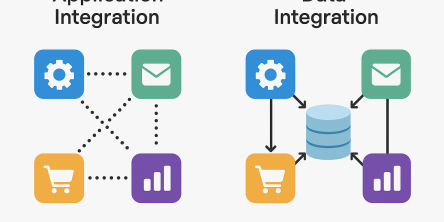Node.JS: Key Use Cases

Programming and development of apps are commonplace now, thanks to the vital role such tools have come to play in the digitalization of, well, everything. Now as businesses set out to build such apps and products, there is the question of what development one must use; of course, the market has plenty of options to offer too & yet, Node.JS seems to be quite the crowd-favorite.
Being open-source, it is built on the Google V8 JavaScript engine. The API modules of Node.js help reduce the complexity of web applications. It allows the creation of scalable servers through its event-driven program model. Further, this model uses call-backs to signal task completion. Also, the NodeJS Use Cases are not limited to web applications. There are many other areas where you can use Node.js.
If this intrigues you and you are wondering if it would make sense for your development project as well, here are some of Node.JS’ key use cases to help you make an informed decision.
1. Data streaming: Data streaming is understandably a crucial part of the modern digital world, but it is not without its problems, especially since it necessitates a continuous data stream generated by various sources and delivered in several formats. This process is quite intensive as well as complex. In this context, Node.JS can be used to create modern data streaming features that allow files to be processed as they are uploaded.
2. Server-side proxy: When one is developing a complex web app, third-party proxy services are unable to properly handle multiple requests from various sources simultaneously. An effective solution to this issue is found via Node.JS which can be put to work as a server-side proxy to gather data from a variety of third-party resources. This way Node.JS can deal with plenty of simultaneous connections sans blocking.
3. Data processing: Yet another compelling use case for Node.JS is when it comes to big data and analytics. It is a given that both big data and data analytics involve extensive amounts of data; unfortunately, running such humongous amounts of data in the browser can result in massive wait times for users. This challenge is easily addressed via Node.JS which makes use of back pressuring to leverage the computer’s resources to deal with huge sets of data.
4. Data connectivity: Given the rapid growth in the number of IoT devices in the world, the development of IoT apps, ensuring IoT connectivity, etc. are among the leading concerns in the market. This problem is further exacerbated by the challenge posed by bandwidth consumption in an IoT network. Node.js helps address this particular problem as well by enabling the development of a proxy server to facilitate data connectivity as well as routing that, in turn, provides support for I/O connectivity without any impediments. It may also help to know that certain JavaScript libraries offer in-built solutions for IoT connectivity amongst devices on the network.
There you have it ladies and gentlemen, some of the many, many use cases where Node.JS can prove to be the ideal choice of app development tool. It is undoubtedly stable, enables accelerated development timelines, and can be easily and quickly scaled up as and when the requirement arises. No wonder why Node.JS remains a preferred choice for countless leading apps across the broad spectrum of industries; some of the biggest apps made using this nifty development tool include Uber, Asana, Twitter, Slack, Netflix, etc. So, what are you waiting for, then? Go ahead and start looking for a trusted name for custom Node.JS development services right away!
Similar Articles
In the world of finance, speed and accuracy are everything. Decisions made a day late can cost millions, and delayed visibility into financial performance can leave even the best organizations blind to risks.
Discover the best tools to enhance employee recognition, boost morale, and create a more motivated, engaged workplace culture.
At first glance, off-the-shelf software appears to be a dream come true. They are quick to set up, cheaper upfront, and marketed as “universal.”
A modern business must continually adapt. This bit everyone seems to know.
The modern healthcare industry is undergoing a significant transformation. The models of healthcare that we are used to thus far are now making way for a more data driven approach
In the modern world, maintaining good health often feels like a constant challenge. Between busy lifestyles, sedentary habits, and lack of motivation, many people find it difficult to stay consistent with exercise, diet, or wellness practices.
Every news publisher's dream, or just getting started, hits that wall sooner or later. What do you build your site on? You’ve basically got two roads: WordPress or custom development.
Discover key features construction teams need in permit tracking software to boost efficiency, stay compliant, and streamline project management.
Thanks to cloud computing, specialized SaaS apps have become rather accessible.








